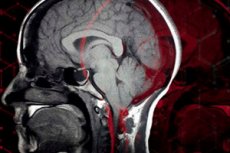New publications
New drug could help the brain heal damage on its own
Last reviewed: 15.07.2025

All iLive content is medically reviewed or fact checked to ensure as much factual accuracy as possible.
We have strict sourcing guidelines and only link to reputable media sites, academic research institutions and, whenever possible, medically peer reviewed studies. Note that the numbers in parentheses ([1], [2], etc.) are clickable links to these studies.
If you feel that any of our content is inaccurate, out-of-date, or otherwise questionable, please select it and press Ctrl + Enter.

Researchers at the University of Georgia have found a new drug that can enhance the brain's ability to repair itself after injury. The discovery could lead to significant advances in the treatment of traumatic brain injury (TBI).
There are currently no FDA-approved drugs that directly repair or prevent brain damage after TBI, leaving a major gap in treatment. A compound called CMX-2043 may help fill that gap by boosting the production of enzymes that play a key role in clearing out harmful molecules after injury.
“What really caught our attention was how CMX-2043 seemed to trigger the brain’s natural defenses,” said Professor Franklin West of the University of Georgia’s College of Agricultural and Environmental Sciences, senior author of the study published in Brain Sciences. West is also co-founder of the university’s Center for Regenerative Biology.
"We saw a clear increase in enzymes. It's like a 'clean-up crew' coming to the rescue after an injury. This tells us that therapy can actually support the brain where it needs it most."
Boosting the brain's ability to repair itself could improve chances of recovery from TBI
Traumatic brain injuries trigger a “storm” in the body, accompanied by inflammation and damage to cells and tissues.
Every year, millions of Americans suffer a TBI, and tens of thousands die from the effects of the injury, according to the Centers for Disease Control and Prevention (CDC).
CMX-2043 is an experimental drug based on a natural antioxidant. This antioxidant is known for its ability to help cells fight damage caused by too many free radicals in the body and not enough antioxidants to neutralize them. The compound was originally studied to treat heart damage, but is now being tested for its ability to limit long-term brain damage after TBI.
Antioxidants and Brain Repair
This study is the first to document brain-specific enzyme activity in a pig model, suggesting a possible link between the antioxidant effect and the brain's ability to recover.
“When the brain’s antioxidant defenses were stronger, the damage we saw in the MRI scans was smaller. That’s very important. It means we can help the brain recover better by boosting its own repair systems,” said study co-author Erin Kaiser, an assistant professor in the College of Agricultural and Environmental Sciences.
“We were surprised that CMX-2043 did not directly cause changes in antioxidant enzyme levels,” said lead author Hea Jin Park, an assistant professor in the University of Georgia’s College of Family and Consumer Sciences. “These changes were actually the body’s own response to injury, but CMX-2043 appears to help strengthen the body’s built-in defense system.”
The next step is to use noninvasive tools such as magnetic resonance spectroscopy to track this response in real time and study how the drug might help treat TBI in people.
West and Kaiser are currently working on TBI therapies with Steven Stice, director of the Center for Regenerative Biology, and Jarrod Call, professor of pharmacology in the College of Veterinary Medicine.
"The early data does point to a promising direction: strengthening the brain's 'clean-up crew' may help change the outcome after injury in favor of recovery," West concluded.
